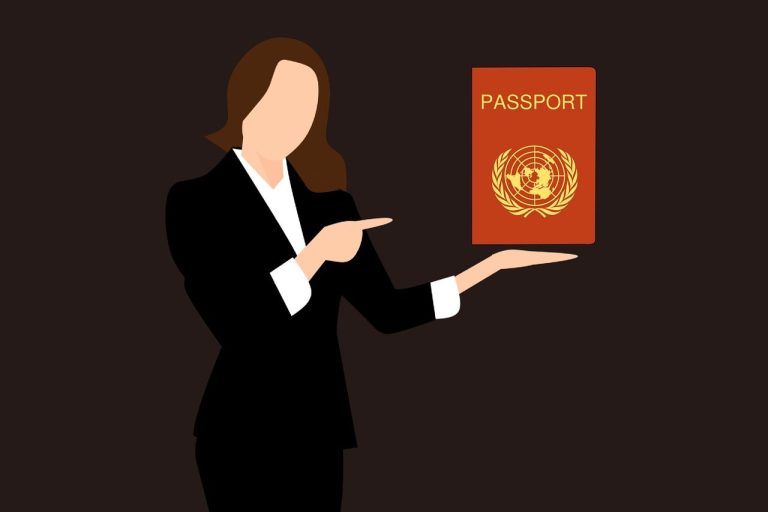New Zealand Visa for Visitors and New Zealand Entry Visa
For those who want to visit New Zealand, the process of obtaining a visa is not too difficult but considering that you’ll need it for more than one visit, there are many factors to consider. This article will give you an overview of what it takes for visitors and how the entry visa can help! NEW ZEALAND VISA FOR VISITORS
How do I get a New Zealand Visa?
If you are a visitor to New Zealand, you may need a visa. Visas can be obtained from any New Zealand embassy or consulate. If you are an Australian citizen, you do not need a New Zealand visa if you stay for less than three months. If you are visiting for more than three months,you will need to apply for a visitor’s visa. The process of applying for a visitor’s visa is simple and can be done in advance of your trip. You will need to provide evidence of your travel plans and sufficient funds to cover the costs of your stay in New Zealand. Once you have obtained your visa, make sure that you carry it with you when travelling to New Zealand. If you do not have a visa, or if it has expired,you will not be able to enter the country.
What Does a New Zealand Visa Cover?
If you are a visitor to New Zealand, you will need a visa. The visa covers your entry into the country and allows you to stay for a specific period of time. You must apply for the visa at least 45 days before your planned arrival in New Zealand.
The most common types of visas are tourist visas, business visas, student visas, and work visas. Each type of visa has different requirements and conditions that you must meet in order to be granted it.
When applying for a visa, it is important to provide accurate information about your identity, travel plans, and reasons for visiting New Zealand. You will also need to provide documents that prove that you are eligible to receive a visa. These documents may include your passport photos, proof of financial stability, documentation of your education or work experience in another country, and more. NEW ZEALAND ENTRY VISA
Once you have received your visa approval letter from the New Zealand embassy or consulate abroad, you can book your flight and start preparing for your visit!
When Can I Enter New Zealand?
The general rule is that visitors must have a valid visa to enter New Zealand. The most common type of visa for visitors to New Zealand is the tourist visa. Other types of visas, such as business or agricultural visas, may also be available depending on your nationality and the purpose of your visit. Visitors who hold a valid Australian passport are generally not required to obtain a new visa for entry into New Zealand. However, Australian citizens must hold a current passport and have proof ofVisa validity (such as an international travel document) in order to stay in New Zealand for more than three months in any one year.
To apply for a tourist visa, you will need to provide evidence of your identity (such as a birth certificate or driver’s licence), citizenship (if you are not a citizen of NZ), and financial stability (a bank statement showing that you have enough money to support yourself while in NZ). You will also need to fill out an application form and pay the required fees. Applications can be submitted either at an NZ embassy or consulate or through the Ministry of Business, Innovation and Employment website. Once your application has been processed, you will receive an approval notice which details the exact dates you are allowed into NZ.
If you are travelling on a business trip, you will need to submit a letter from your employer confirming that your visit is related to your job duties. You will also need to provide evidence that you
What are the Requirements for a New Zealand Visa?
To be able to apply for a New Zealand visa, you must meet the requirements set by the New Zealand Ministry of Foreign Affairs and Trade (Mfat). These requirements vary depending on your nationality, but usually you will need to provide evidence that you:
– Are a citizen of a country that is an official partner of New Zealand – this includes most European countries, Australia, and many other countries around the world.
– Are not a threat to public policy or national security – this means that you do not have any convictions that could affect your eligibility for travel or citizenship in another country.
– Do not pose a financial or health risk to New Zealand – this includes having enough money to support yourself and no history of serious medical conditions.
– Can support yourself financially while in New Zealand – this means having a recent bank statement showing that you have enough money to cover your expenses while in the country.
– Have valid passport and visa – both of which must be at least six months before your planned departure from your home country.
How to Apply for a New Zealand Entry Visa?
If you are planning to visit New Zealand, the first step is to apply for a visa. There are three types of visas that you can apply for: a tourist visa, business visa, or student visa. Each visa has its own requirements and restrictions, so it is important to consult with an immigration lawyer if you are unsure of what type of visa would be best suited for your purposes.
Visitor visas are issued to tourists who want to visit New Zealand for less than six months. To qualify for a visitor visa, you must have a valid passport and proof of funds. Some basic documentation such as a driver’s license may also be required.
Business visas are issued to individuals who intend to stay in New Zealand for more than six months and either carry out commercial activities or provide services to the local population. Businesses must submit an application form along with evidence that they have the financial resources necessary to carry out their proposed activities in New Zealand.
Student visas are issued to individuals who wish to study in New Zealand for more than 180 days. In order to qualify, you must have a valid passport, proof of funds (if studying full-time), and transcripts from all universities attended. You will also need letters of recommendation from professors at your previous schools.






